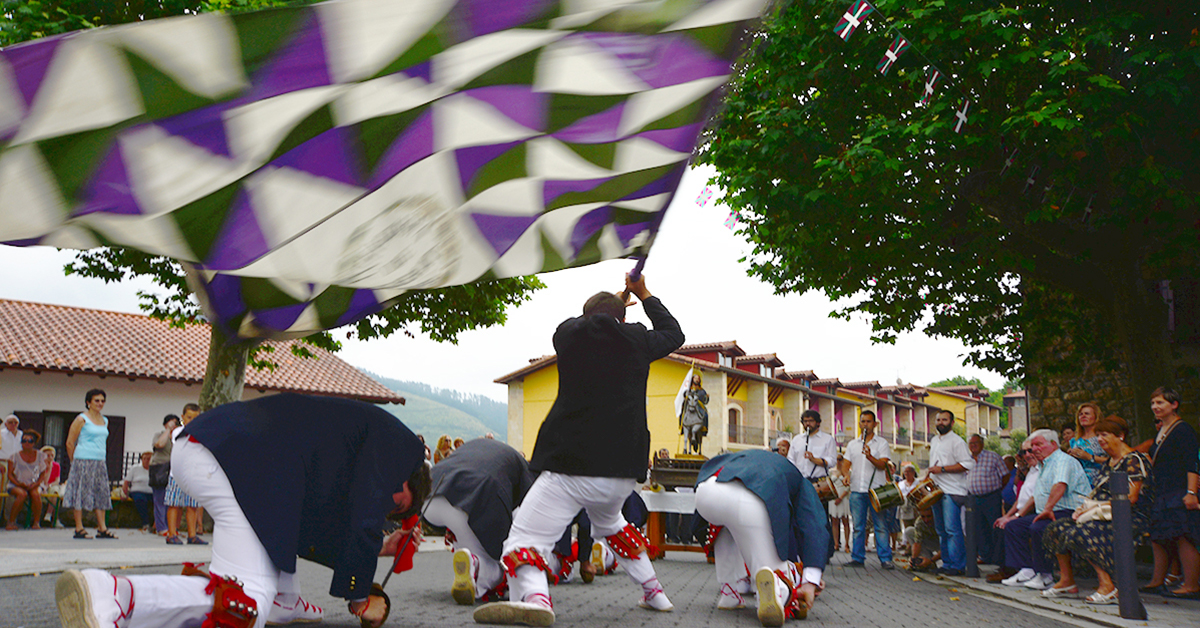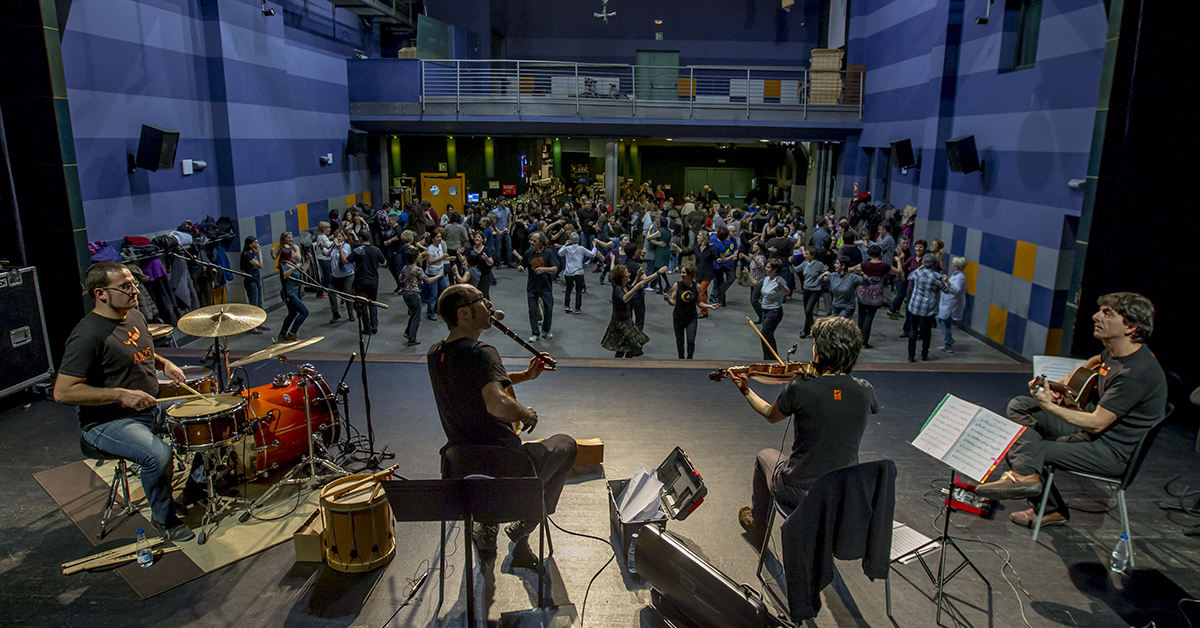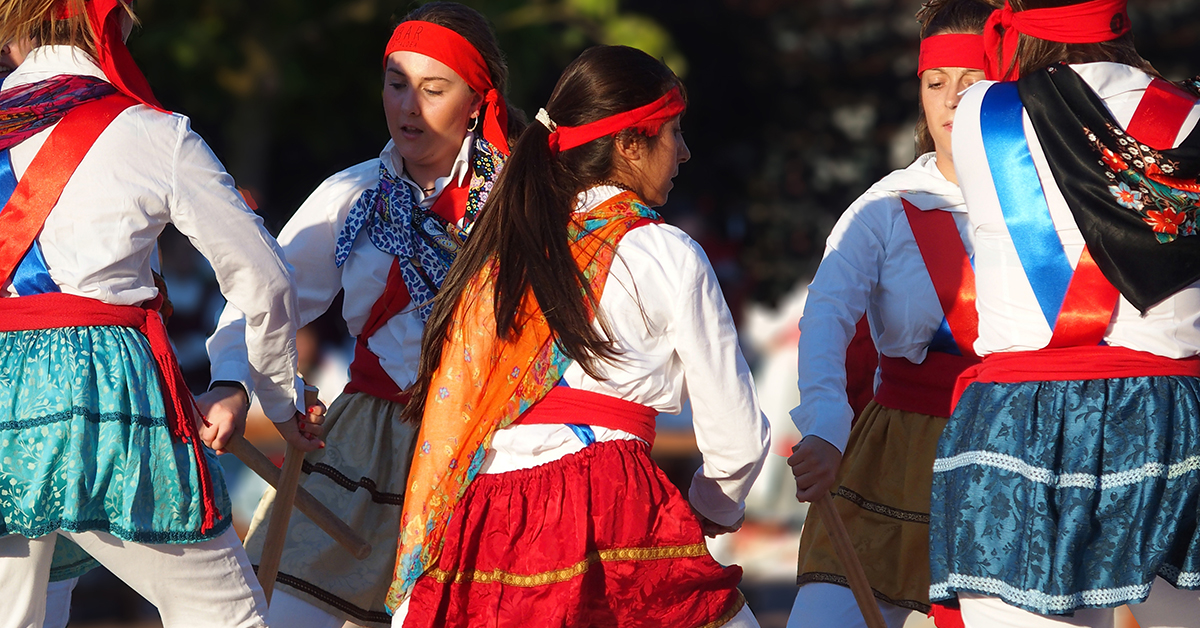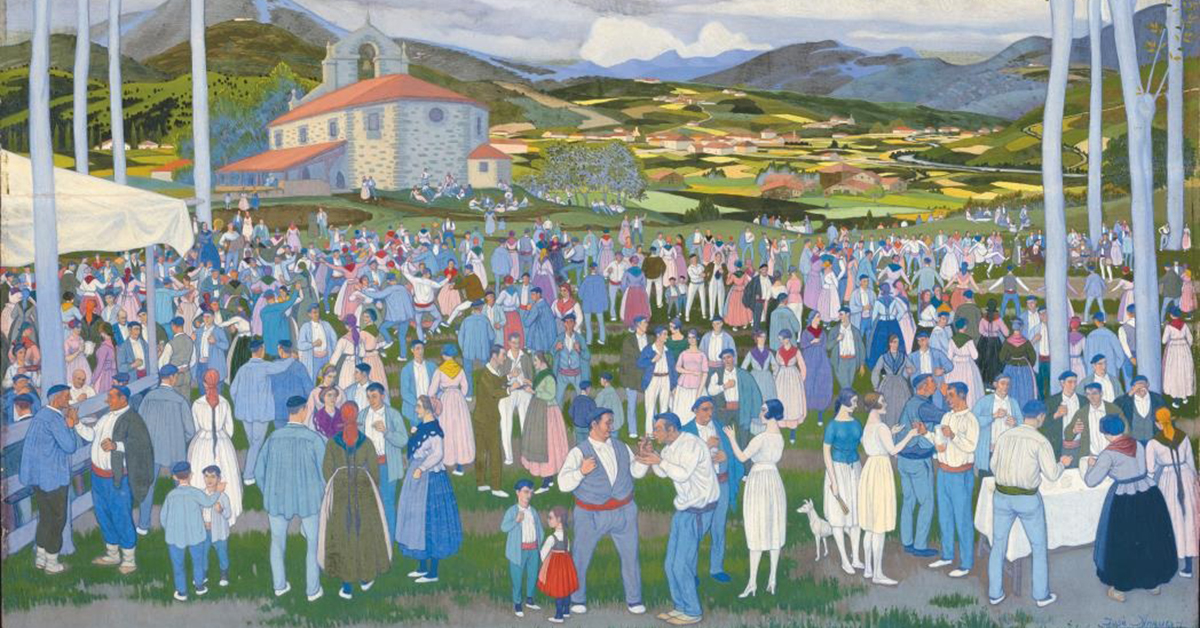Archives

Flag waving before the image of St James. Garai (Bizkaia), 2013. Photo credit: Emilio Xabier Dueñas.
Nothing but simple rags with a lost function for some, unique rewards for impressive feats accomplished for others, and a symbol of identity for an important part of society. Be that as it might, the banner, the standard, the flag… are often insignia and fabrics loaded with devotion, fanaticism or honour, straddling boundaries —sports, religion, politics, patriotism, or folklore—, and even seeking to differentiate social status.
On more than one occasion we have been able to observe how in some European countries, as well as in territories close to Euskal Herria, in sumptuous or festive acts, flags are waved: whether defending a military origin or as a ritual with historic roots in the uprising of the people against the oppressive feudal power.

Music-and-dance event enlivened by the group Aiko. Iñaki de Andrés.
St James’ Square in Bilbao. Last Saturday of the month. 21:00 hours. Following the tradition of yesteryear, a dance would be held in this charming corner of Bilbao, were it not that we are in the midst of a global pandemic. Should we place our hundred-year-old grandmother in the middle of the square, what would she think? She would probably enjoy seeing so many people dancing, but would she know how to dance with them? I would say she would not. She might feel as if she were somewhere else, far from the dear city where she grew up. And with good reason. The Bilbao of today is not the Bilbao of her youth. The city has changed, just as the way its peoples dance and the music repertoire played in its squares have changed. That is what these lines are about. (more…)
Dance and creative movement are universal forms of communication and self-expression (language through motion), generally associated with music or rhythm, their creation, preservation and execution having fallen on different social layers throughout history.
Basque ‘traditional’ dance, as we know it, is the result of a process of survival over time, with its ups and downs, and more interruptions, in its performance, than we might think of. Its contours should therefore not fool us into defending a supposed past longevity and authenticity which would force us to travel back to the ‘night of time’. (more…)
By accepting that tradition is a constantly evolving concept, we accept that it will not always move in the right direction. Nevertheless, those of us who are part of that tradition and promote it must be aware of the responsibility such a task entails. What we do will have an effect, in one way or another, on the evolution and future of the said tradition.
Slowly but surely, traditional dance tends towards normalization, and thus away from diversity. It might be on the right path, it might be on the wrong path: for better or for worse, it depends on the eye of the beholder. (more…)







